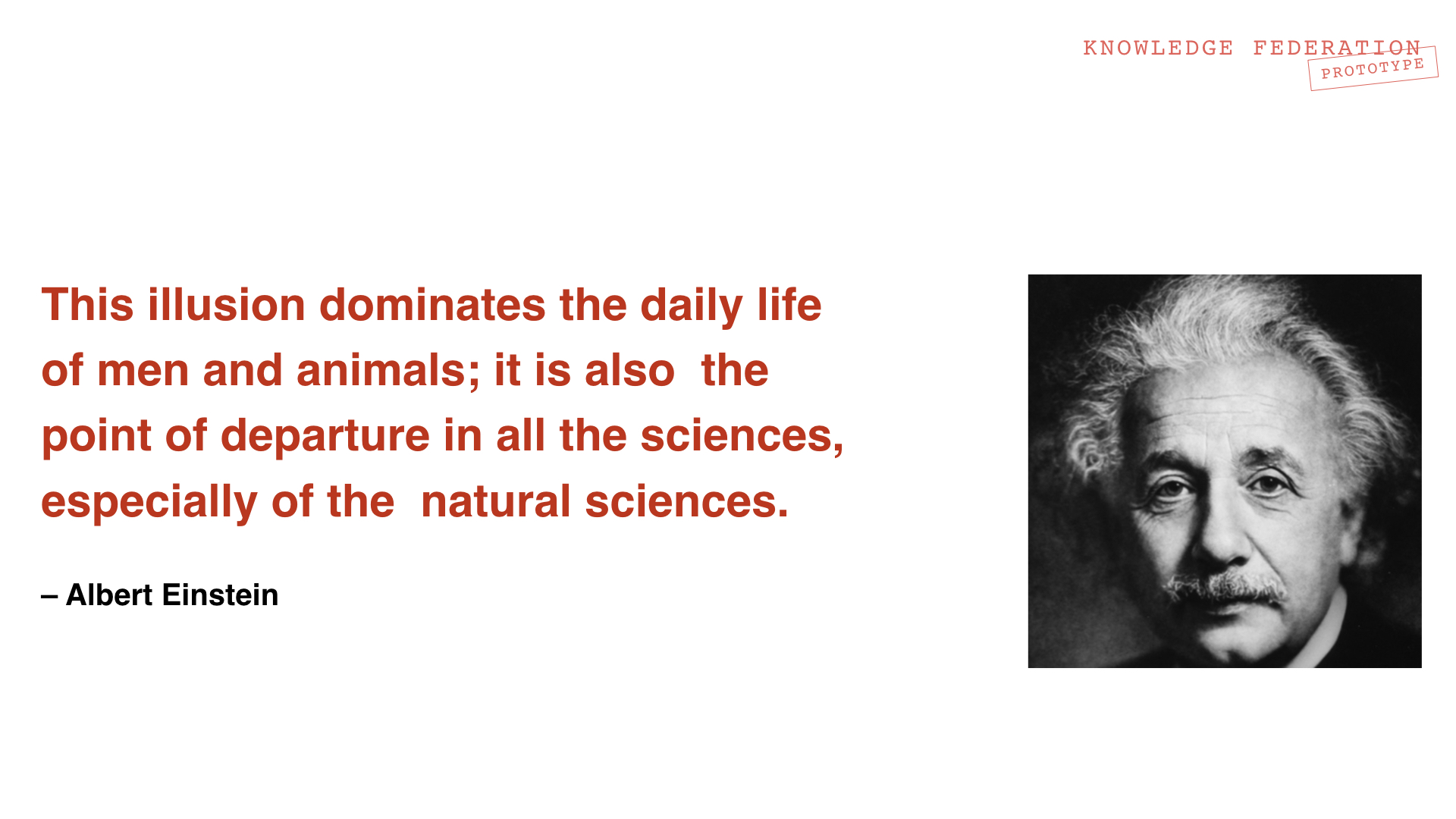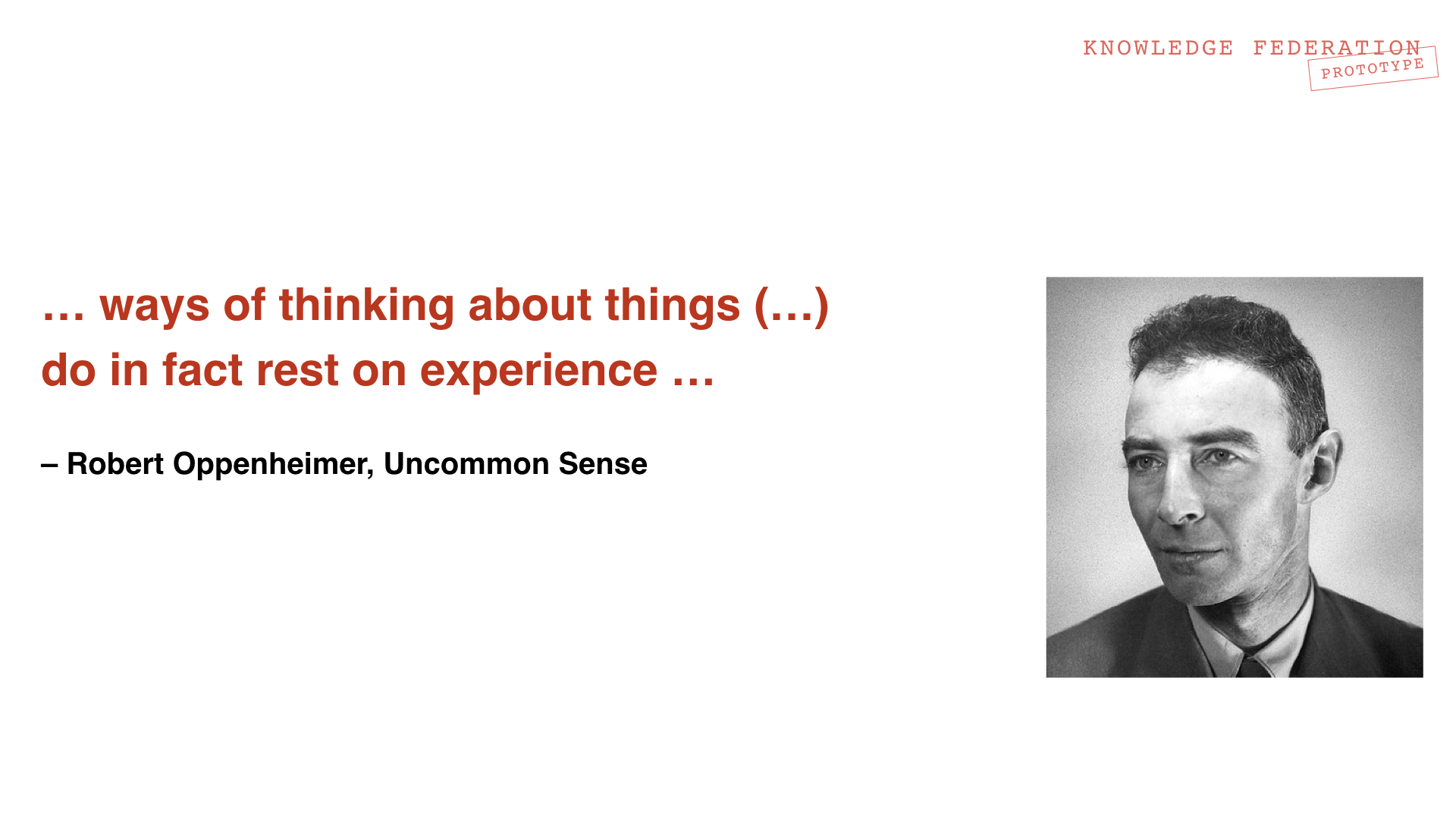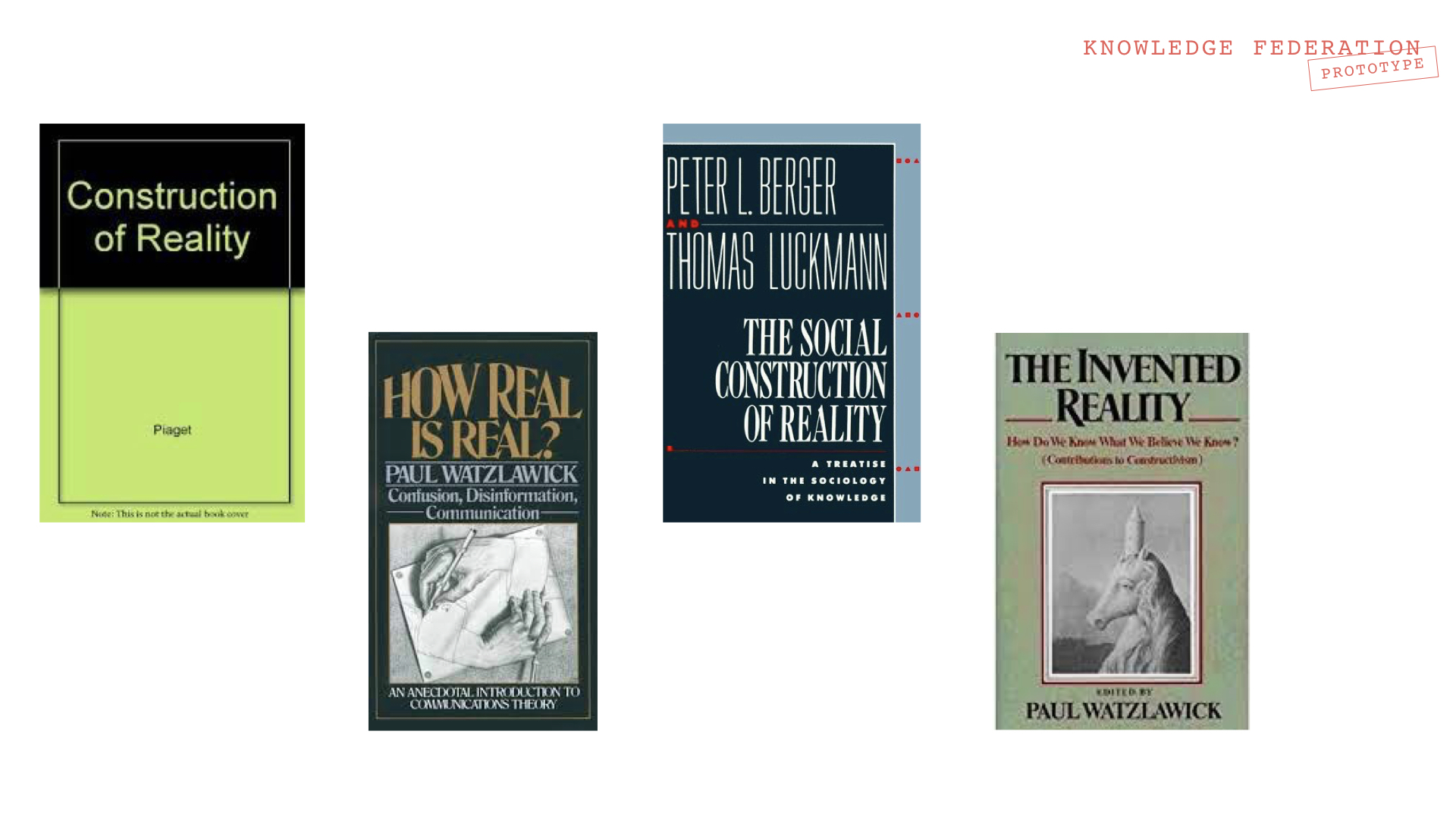Holotopia: Socialized reality
H O L O T O P I A: F I V E I N S I G H T S
Socialized reality
Let us federate our culture's foundations
Werner Kollath, Erich Jantsch, Douglas Engelbart, Werner Heisenberg and other 20th century's thinkers who saw elements of an emerging paradigm made their appeals to academia. With astonishing consistency, they were ignored.
It is the academia's privileged social role to decide what ideas will be explored taught at universities, and given citizenship rights. The standards for right knowledge, which the academia upholds in our society, decide what education, public informing, and general information consumption will be like.
What are those standards? What are they based on?
The foundations on which truth and meaning are created in our society, and which determine our cultural praxis, tend to be composed of vague notions such as that science provides an "objectively true picture of reality".
During the 20th century a wealth of insights have been reached in the sciences, humanities and philosophy, which challenged or disproved the age-old beliefs based on which our culture's foundations have evolved.
But they too have been ignored!
To understand our main point, now—we are not proposing new foundations; we ae initiating a process by which the creation of foundations will be made the prerogative of the people
We are initiating something akin to trial by jury—in a domain that decides all power relations in our society. A process by which the foundations will be continuously improved. Think of it as the reversal of the trials of Galilei and Socrates. This central issue is no longer decided "behind the closed door"; it is made a subject of a public process, akin to the traditional "trial by jury".
Stories
"Reality" is a myth
From the traditional culture we inherited a myth incomparably more subversive than the myth of creation. That myth now serves as the foundation stone on which the edifice of our culture has been erected.
The common belief that "truth" means "correspondence to reality", and that our ideas, when they are "true", correspond to reality, has been shown to be (1) impossible to verify and (2) a common product of illusion (see our story argument here).
Why base our creation of truth and meaning, and our pursuit of knowledge—which are all-important human activities—on a criterion that cannot be verified; and which itself tends to be a product of illusion?
Causal comprehension is not a reality test
It takes only a moment of reflection to see just how much the "aha feeling"—when we understand how something may result as a consequence of known causes—has been elevated to the status of the reality test. But is it really that?
The Enlightenment empowered the human reason to comprehend the world. Science taught us that women cannot fly on brooms—because that would violate some well established "natural laws". Innumerable prejudices and superstitions were dispelled.
But we've also thrown out the baby with the bathwater!
Reason cannot know "reality"
Even our common sense is a product of (our and our culture's) experience, with things such as pebbles and waves of water. We have no reason to believe that it will still work when applied to things we do not have in experience, such as small quanta of matter—and it doesn't!. A complete argument, based on the double-slit experiment, is in Oppenheimer's essay "Uncommon Sense".
"Reality" has no a priori structure
Indeed, when the insights reached in the last century's science and philosophy are taken into account, the reason is compelled to conclude that there is no "the reality" out there, waiting to be discovered. All we have to work with is human experience—of a world that, to our best knowledge, has no a priori structure.
A piece of material evidence is Einstein's "epistemological credo", which we commented here.
"Reality" is constructed
Having thus lost its bearings in philosophy, "reality" as preoccupation migrated to biology, psychology and sociology—where the mechanisms of our reality constructions could be studied.
We represented them by Maturana, Piaget and Berger and Luckmann—see our commentary that begins here.



